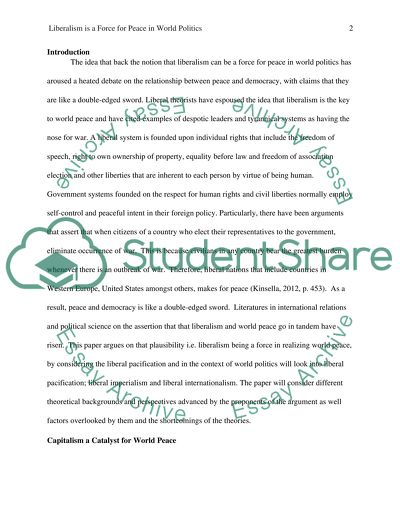Cite this document
(“Peace in World Politics Essay Example | Topics and Well Written Essays - 1500 words”, n.d.)
Retrieved from https://studentshare.org/history/1626020-peace-in-world-politics
Retrieved from https://studentshare.org/history/1626020-peace-in-world-politics
(Peace in World Politics Essay Example | Topics and Well Written Essays - 1500 Words)
https://studentshare.org/history/1626020-peace-in-world-politics.
https://studentshare.org/history/1626020-peace-in-world-politics.
“Peace in World Politics Essay Example | Topics and Well Written Essays - 1500 Words”, n.d. https://studentshare.org/history/1626020-peace-in-world-politics.


